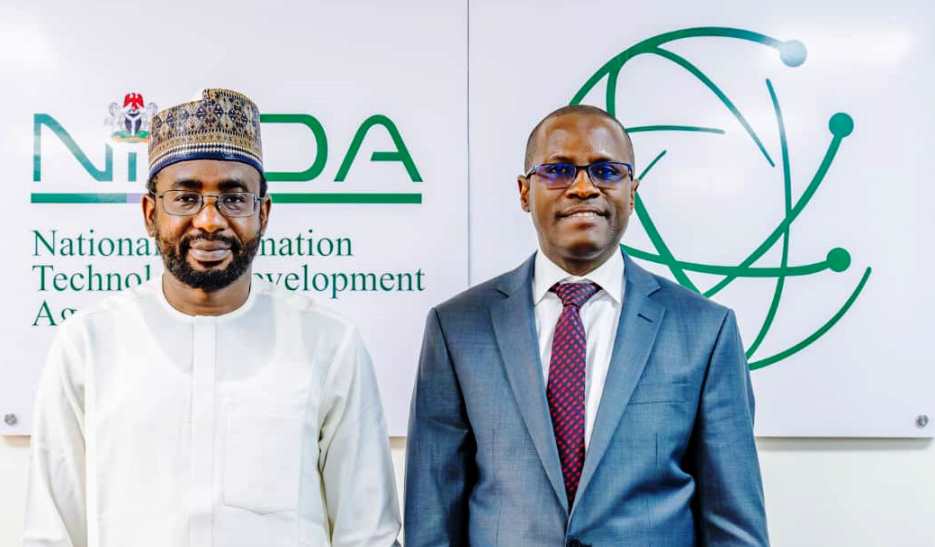Nigeria’s higher education sector is facing fresh scrutiny as the Nigerian Education Loan Fund (NELFUND) raises alarms about substantial tuition hikes in several universities and polytechnics. According to internal documents obtained from NELFUND’s risk management team, some institutions have increased their fees by rates ranging from 20% up to a staggering 521% in the past year, especially for competitive programs like Medicine, Nursing, and Law.
This ongoing surge has intensified pressure on students, families, and the loan fund itself, stoking concerns about affordability, access, and the long-term viability of the student loan programme. The crisis underscores deeper challenges within Nigeria’s education landscape and has resonated with students, parents, and education advocates across West Africa and beyond.
Sharp Fee Increases: Institutions and Statistics
NELFUND’s recent report, titled “Framework to Mitigate the Impact of Increased Institutional Charges on the Fund’s Operations,” highlights the universities most impacted by this rapid escalation. Institutions cited include the University of Ilesha (Osun State), Ekiti State University, University of Medical Sciences (Ondo), Edo State University, Ladoke Akintola University of Technology (LAUTECH) in Oyo State, and David Umahi Federal University of Health Sciences (DUFUHS) in Ebonyi State.
According to NELFUND’s data, some of the most notable increases are:
- University of Ilesha raised Nursing tuition from ₦825,000 to ₦1,276,000 (55% jump), and Law school fees rose by 20%.
- Ekiti State University increased Medicine and Surgery fees by 42%, from ₦797,000 to ₦1,132,000.
- Edo State University hiked Medicine fees from ₦3.25 million to ₦4.25 million (31% rise), meaning students could graduate with debts exceeding ₦51 million.
- University of Medical Sciences, Ondo, implemented increases of up to 149% on some courses, with Nursing now costing ₦2.245 million.
- LAUTECH’s Medicine and Surgery jumped from ₦126,000 to ₦782,000—a 521% increase.
- DUFUHS in Ebonyi raised Medicine and Surgery fees by nearly half, to ₦1.5 million.
Additionally, other tertiary institutions have followed suit, such as the Federal University of Agriculture, Abeokuta (FUNAAB), Federal University Oye-Ekiti (FUOYE), and Kogi State Polytechnic, implementing fees hikes that range, reportedly, up to over 1,000% in some cases.
NELFUND’s Response: Recommendations and Concerns
Faced with this surge, NELFUND has recommended several interim measures. According to the internal document, these include suspending loan disbursements to institutions with “extreme increases,” capping available loans until a lasting resolution is reached, or temporarily halting loans where hikes exceed 100% until proper review.
Longer-term, the Fund’s report proposes collaboration with the Federal Ministry of Education to establish national fee guidelines. It also recommends updating loan criteria and publishing institutional fee thresholds transparently, alongside launching channels for students to anonymously report unfair pricing or exploitative practices.
Impact on Students and Households
As students and parents grapple with new financial realities, the situation is stirring unrest across Nigeria’s campuses. Reports indicate that the removal of fuel subsidies and inflation have been used to justify previous increases, but many stakeholders now argue that rising charges are outpacing household incomes and the country’s minimum wage.
According to the NELFUND Student Loan Disbursement Dashboard as of September 26, 2024, the Fund had disbursed over ₦107.6 billion to 581,878 students nationwide. Out of this, ₦61.3 billion funded tuition and institutional fees, while ₦46.3 billion covered student upkeep. Despite these efforts, many experts warn that spiraling tuition may erase perceived benefits of the scheme for less privileged families.
“A sharp jump in tuition undermines the core vision of President Tinubu’s support for indigent students,” insisted Mr. Alabi Ademola, a concerned parent. “If left unchecked, only the wealthiest families will afford higher education, pushing poor households further to the margins.”
Reactions from Students, Unions, and Education Advocates
Education analysts and civil society groups are voicing serious reservations. Some, like the Education Rights Campaign (ERC), argue that the student loan framework, in its current form, could become a “debt trap.” Michael Adaramoye, the ERC’s National Mobilisation Officer, suggested, “Instead of easing the burden, loans are creating new financial problems, leading to lifelong indebtedness for graduates.”
ERC, NANS (National Association of Nigerian Students), and other advocacy groups have called for reversals of the fee increases, with some insisting tuition should not exceed the national minimum wage of ₦77,000. Most student bodies are lobbying for grant-based assistance over loans, arguing that quality public education must be funded as a national priority, not commodified.
In a recent phone interview, NANS spokesperson Adeyemi Ajasa said, “NANS will not stand by while exorbitant fees price out regular Nigerians. We want restrictions or even direct intervention by the Ministry of Education for institutions that ignore the spirit of public service.”
Ajasa also alleged that many universities are seeing the loan programme as a green light to hike fees at will, assuming loans will always cover the cost. “The reality is many students have not taken loans, and for those who have, it’s still a debt they must eventually repay,” he stressed.
Universities Speak: Defending the Hikes
Representatives of the affected institutions, meanwhile, claim that current economic realities and the need to uphold academic standards are behind the adjustments. Babatunde Fanawopo, Senior Assistant Registrar at the University of Ilesha, explained, “Nothing good comes cheap. Our tuition, especially for Law and Nursing, remains among the most affordable for programmes of this calibre.” He stated that some programmes, such as Education and Agriculture, remain tuition-free as a reflection of their importance for Nigeria’s development.
Olasunkanmi Olajide, head of public relations at FUNAAB, cited inflation and increased operating costs driving fee adjustments. Similar sentiments were echoed by spokespersons from UNIMED and DUFUHS, with the latter affirming that due process was followed in approving new charges.
However, institutional responses have not satisfied student leaders or parents. At FUOYE, Public Relations Officer Foluso Ogunmodede reported that previous hikes were reversed following an outcry, but concerns linger as some institutions have reportedly implemented new increases for the upcoming 2025/2026 session.
Policy and Legal Complexities
The ability of Nigeria’s federal government to intervene in tuition matters is complicated by constitutional realities. Education falls under the “concurrent legislative list,” meaning both state and federal authorities have responsibilities but also limitations in directly imposing controls on fees or charges set by state-owned institutions.
As Lagos-based education policy analyst Dr. Olabode Sanya notes, “Unless there are clear national guidelines, many universities—particularly state and specialized federal ones—will continue to set fees as they see fit. National dialogue and a holistic funding approach are crucial for lasting resolutions.”
Looking Ahead: Balancing Access, Quality, and Sustainability
With more students and parents demanding education reform, Nigeria faces tough choices: how to keep higher education affordable yet sustainable, particularly amid inflation and government budget constraints. The conversation is not unique to Nigeria; across West Africa and globally, countries are grappling with the balance between public funding, tuition fees, and student debt.
NELFUND’s crisis—and the broader debate—touches on vital questions about Nigeria’s future workforce, equity, and the role of government in ensuring universal access to education.
What is the best way forward for Nigeria’s students? Should the focus shift from loans to grants, stricter regulation, or increased direct government investment?
What’s your perspective on the surge in tertiary tuition fees? Should loans be capped, grants be prioritized, or are new policies needed altogether? Drop a comment below and follow us for in-depth analysis and updates as the story unfolds.
Got a tip, opinion, or story to share about education or student life in Nigeria, Ghana, or West Africa? We want to hear your voice! Reach out and get your story featured—or discuss selling your compelling reports—by emailing story@nowahalazone.com.
For general support, collaboration, or feedback, contact us at support@nowahalazone.com.
Stay engaged—follow us on
Facebook,
X (Twitter), and
Instagram
for updates, local reactions, and real stories from students and communities like yours!










